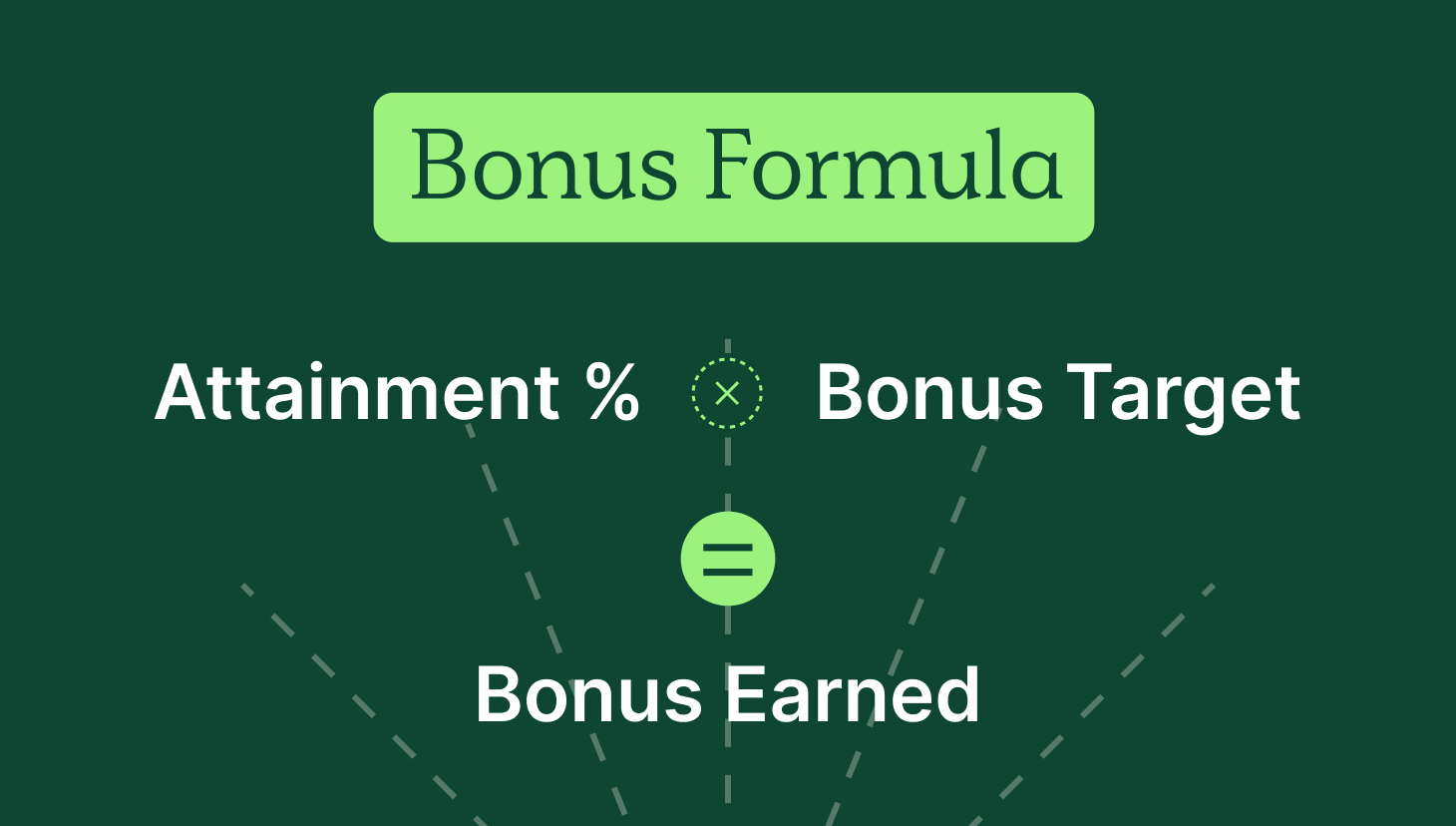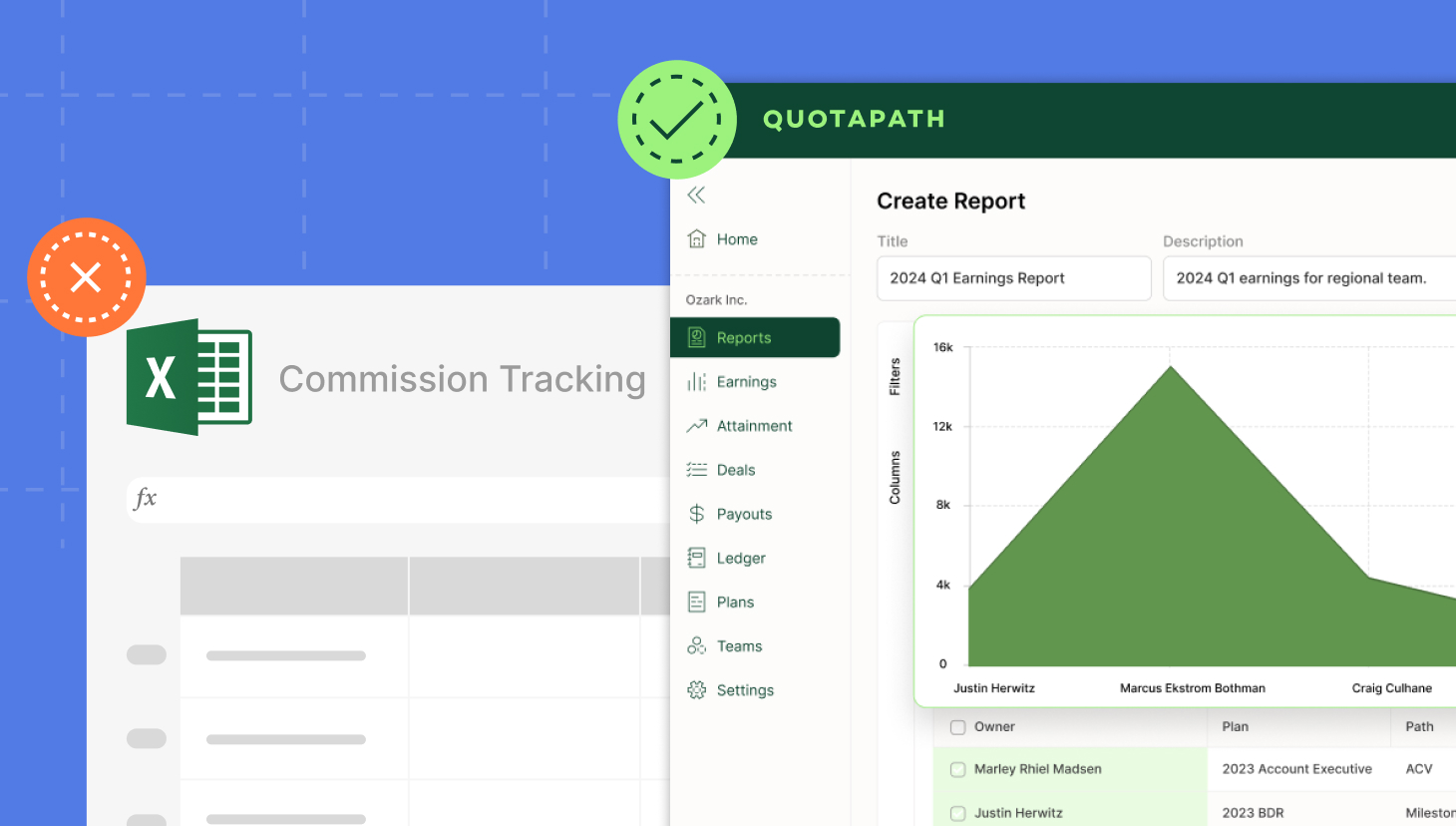In our final installment in our sales compensation plan guide, we’re going to be covering milestone bonuses. Milestone bonuses are a fairly unique type of bonus and vary from the other types of bonuses we’ve covered (single rate and multiple rate) as well as the commission rates we’ve written about previously (single rate and multiple rate).
RevOps, sales leaders, and finance teams use our free tool to ensure reps’ on-target earnings and quotas line up with industry standards. Customize plans with accelerators, bonuses, and more, by adjusting 9 variables.
Build a Comp PlanWhat you need to know about milestone bonuses
A final reminder that there’s a difference between commissions and bonuses. Bonuses are a set amount of money you earn for doing a specific task. Commissions are a percentage of a revenue number you earn for closing a deal. If a rep gets 20% of every deal closed, that’s commission. If a rep gets $200 for every deal they close, that’s a bonus.
A milestone bonus is earned if certain stipulations are met (example below) and doesn’t vary if you’re above or below those requirements. If you hit a milestone, you earn a set amount, any less you get nothing, any more you get the same bonus.
Examples of milestone bonus plans
An Account Executive has a monthly quota of $25,000 and when they hit that quota they get a $2,000 bonus.
A Sales Development Representative has a monthly goal of setting 25 meetings and earns a $1,000 bonus when they set 25 meetings. They also receive a $1,000 bonus if they happen to set 40 meetings (two milestone bonuses!).
A Sales Manager gets a $1,000 bonus if someone on their team closes a deal that is over $50,000. This is an ‘each individual deal’ style bonus where they earn $1,000 if the deal is over $50,000 but don’t earn anything if the deal is under that, and don’t earn any more if the deal is $100,000.
Pros of milestone bonus plans
Low financial risk. Because the organization knows the maximum amount that they’re on the hook for, it removes a bit of the risk of other commission or bonus plans. You know the maximum you’ll have to pay out is the milestone bonus amount.
Encourages consistency. Especially if your plan is similar to the first example above (milestone bonus for hitting quota), you’re likely to see reps more eager to hit their targets regularly. It encourages your reps to focus on getting to that number at the very least, which can create a culture of consistency.
Cons of milestone bonus plans
Can encourage sandbagging. This is the yang to consistency’s yin. If a rep has already unlocked their milestone bonus this month they might be more likely to push a deal to the next month in order to unlock next month’s milestone. That’s why I like to pair a milestone bonus with an accelerated commission rate. Speaking of which…
Doesn’t work well alone. Unlike most of the other compensation styles we’ve written about recently, it’s rare to see a compensation plan that exclusively employs a milestone bonus. It’s usually combined with at least one other commission or bonus rate.
Try the most collaborative solution to manage, track and payout variable compensation. Calculate commissions and pay your team accurately, and on time.
Start TrialOver 90% of compensation plans work in QuotaPath and with all the other features, it’s a no-brainer for the modern sales team. Beyond the known benefits of sales commission tracking software, QuotaPath is free and easy to try out for your team.



